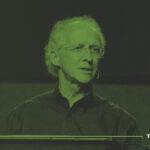While Martin Luther King Jr. wrote his renowned “Letter from Birmingham Jail” in 1963, many residents of the predominantly white communities over the mountain from Birmingham, Alabama, ignored the unrest downtown. When Bull Connor unleashed his fire hoses and dogs, the leading local newspaper relegated coverage to inside the cover, downplaying the significance of the protests and the harsh response of the police. King argued, “Injustice anywhere is a threat to justice everywhere.” Even in you own backyard, however, injustice is easily ignored.
Yet today, social media and cable news have made it more difficult than ever to ignore unrest and injustice. Evil searches but does not find a place to hide. At the same time, Twitter commentary and Facebook photos have also spread outright misinformation and unhelpful speculation with unprecedented speed. Mutual mistrust between ethnic groups compounds our problems and inhibits helpful dialogue and joint action.
The church has too often capitulated to the status quo and condoned injustice through silence. But neither should the church speak with presumption in the absence of trustworthy reports. Finding the right balance and speaking with the prophetic word of the gospel has eluded many of us in the aftermath of the police killing in Ferguson, Missouri. Reliable facts haven proven elusive to even fair-minded Christian leaders. Nevertheless, America’s long history of racial injustice burdens whites in the majority to listen and understand grievances from the minority perspective.
That’s the process being undertaken by Darrin Patrick, lead pastor of The Journey in nearby St. Louis. Patrick says the response to Ferguson has been perhaps the most challenging situation he’s faced in ministry with regard to church unity. He wants evangelicals to grow in our ability to listen and learn as we study what the Bible teaches about injustice. He spoke today with Mark Mellinger, co-host of the podcast Going Deeper with TGC, about why we should sometimes keep quiet and why we always need empathy.
Mellinger also talked with vicariously “traumatized” Ed Copeland, pastor of New Zion Baptist Church in Rockford, Illinois. “As a church we’re asleep,” Copeland told Mellinger. Referring to the Great Commission, he calls on whites in the church not to skip from the safety of Jerusalem to reach the ends of the earth before they’ve listened to their black neighbors next door in Samaria.
Listening to our neighbors reminds us that human nature is much more complicated than the soundbites on the news. The church, then, bears responsibility to look to Jesus together for redemption and forgiveness, the only hope to ultimately overcome episodic outbursts of injustice and anger.

































